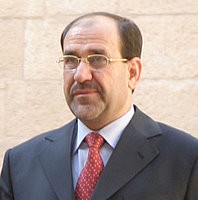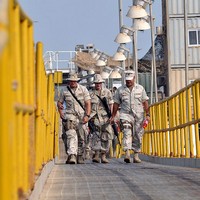
Amid Syria’s widespread civil disorder, ongoing since March 2011, the government of Iraqi Prime Minister Nouri al-Maliki has pressed on with its policy of rapprochement with Syrian President Bashar al-Assad’s regime. Political disputes, border tensions, demographic differences and personal animosities between their political leaders have troubled relations between Syria and Iraq for many years. For decades, relations were also strained due to the two neighbors’ traditional rivalry for pre-eminence in the Arab world, allegations of interference in each other’s internal affairs, disputes over oil transit fees and their stances on Israel, and suspicions that each side was aiding the opponents […]

